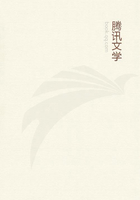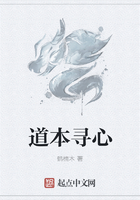But to return to my purpose. When there is anything deficient in numbers and sound, the reader is uneasy and unsatisfied; he wants something of his complement, desires somewhat which he finds not: and this being the manifest defect of Horace, it is no wonder that, finding it supplied in Juvenal, we are more delighted with him. And besides this, the sauce of Juvenal is more poignant, to create in us an appetite of reading him. The meat of Horace is more nourishing, but the cookery of Juvenal more exquisite; so that, granting Horace to be the more general philosopher, we cannot deny that Juvenal was the greater poet--I mean, in satire. His thoughts are sharper, his indignation against vice is more vehement, his spirit has more of the commonwealth genius; he treats tyranny, and all the vices attending it, as they deserve, with the utmost rigour; and consequently a noble soul is better pleased with a zealous vindicator of Roman liberty than with a temporising poet, a well-mannered court slave, and a man who is often afraid of laughing in the right place--who is ever decent, because he is naturally servile.
After all, Horace had the disadvantage of the times in which he lived; they were better for the man, but worse for the satirist. It is generally said that those enormous vices which were practised under the reign of Domitian were unknown in the time of Augustus Caesar; that therefore Juvenal had a larger field than Horace.
Little follies were out of doors when oppression was to be scourged instead of avarice; it was no longer time to turn into ridicule the false opinions of philosophers when the Roman liberty was to be asserted. There was more need of a Brutus in Domitian's days to redeem or mend, than of a Horace, if he had then been living, to laugh at a fly-catcher. This reflection at the same time excuses Horace, but exalts Juvenal. I have ended, before I was aware, the comparison of Horace and Juvenal upon the topics of instruction and delight; and indeed I may safely here conclude that commonplace: for if we make Horace our minister of state in satire, and Juvenal of our private pleasures, I think the latter has no ill bargain of it. Let profit have the pre-eminence of honour in the end of poetry; pleasure, though but the second in degree, is the first in favour. And who would not choose to be loved better rather than to be more esteemed! But I am entered already upon another topic, which concerns the particular merits of these two satirists.
However, I will pursue my business where I left it, and carry it farther than that common observation of the several ages in which these authors flourished.
When Horace writ his satires, the monarchy of his Caesar was in its newness, and the government but just made easy to the conquered people. They could not possibly have forgotten the usurpation of that prince upon their freedom, nor the violent methods which he had used in the compassing of that vast design; they yet remembered his proscriptions, and the slaughter of so many noble Romans their defenders--amongst the rest, that horrible action of his when he forced Livia from the arms of her husband (who was constrained to see her married, as Dion relates the story), and, big with child as she was, conveyed to the bed of his insulting rival. The same Dion Cassius gives us another instance of the crime before mentioned--that Cornelius Sisenna, being reproached in full senate with the licentious conduct of his wife, returned this answer: that he had married her by the counsel of Augustus (intimating, says my author, that Augustus had obliged him to that marriage, that he might under that covert have the more free access to her). His adulteries were still before their eyes, but they must be patient where they had not power. In other things that emperor was moderate enough; propriety was generally secured, and the people entertained with public shows and donatives, to make them more easily digest their lost liberty.
But Augustus, who was conscious to himself of so many crimes which he had committed, thought in the first place to provide for his own reputation by making an edict against lampoons and satires, and the authors of those defamatory writings, which my author Tacitus, from the law-term, calls famosos libellos.
In the first book of his Annals he gives the following account of it in these words:- Primus Augustus cognitionem de famosis libellis, specie legis ejus, tractavit; commotus Cassii Severi libidine, qua viros faeminasque illustres procacibus scriptis diffamaverat. Thus in English:- "Augustus was the first who, under the colour of that law, took cognisance of lampoons, being provoked to it by the petulancy of Cassius Severus, who had defamed many illustrious persons of both sexes in his writings." The law to which Tacitus refers was Lex laesae majestatis; commonly called, for the sake of brevity, majestas; or, as we say, high-treason. He means not that this law had not been enacted formerly (for it had been made by the Decemviri, and was inscribed amongst the rest in the Twelve Tables, to prevent the aspersion of the Roman majesty, either of the people themselves, or their religion, or their magistrates; and the infringement of it was capital--that is, the offender was whipped to death with the fasces which were borne before their chief officers of Rome), but Augustus was the first who restored that intermitted law. By the words "under colour of that law" he insinuates that Augustus caused it to be executed on pretence of those libels which were written by Cassius Severus against the nobility, but in truth to save himself from such defamatory verses. Suetonius likewise makes mention of it thus:- Sparsos de se in curia famosos libellos, nec exparit, et magna cura redarguit. Ac ne requisitis quidem auctoribus, id modo censuit, cognoscendum posthac de iis qui libellos aut carmina ad infamiam cujuspiam sub alieno nomine edant.

